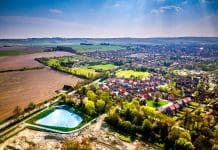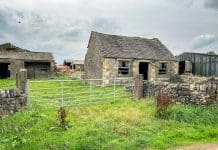An innovative big data project will create a dynamic picture of the city of Glasgow to help urban planners to develop solutions to challenges facing cities
Big data will play a significant role in a new innovative research project aimed at discovering the challenges facing modern day cities.
The project from the Urban Big Data Centre will see large and diverse sources of data collated to create a detailed picture of Scottish city Glasgow. It is hoped this will help policymakers, communities and urban planners develop effective solutions to issues facing modern day cities.
Urban planning
The Urban Big Data Centre is funded by the research council the ESRC. It is a collaboration between urban social scientists and data scientists from the University of Glasgow and six partner universities: Edinburgh, Bristol, Cambridge, Reading, Sheffield and Illinois-Chicago. The centre is one of four research facilities that make up the ESRC’s Big Data Network.
Director of the centre Professor Piyushimita (Vonu) Thakuriah said: “Faster urbanisation, ageing population, pressure on public spending and sustainability concerns; these are only some of the challenges facing our cities.
“Our researchers are asking the hard questions around these challenges, such as how can we prepare our cities better for the future; how can we deal with economic, social and environmental shocks; how can cities respond to the needs and experiences of people who live, work and travel there?”
Insight into how cities function
The project will utilise the centre’s Integrated Multimedia City Data (iMCD) platform. This is a collection of multiple data sources that provides insight into how Glasgow functions. It includes data on traffic monitoring, pollution levels, resident surveys, GPS tracking data, city-wide remote sensing and commercial databases.
The data is collected as people living in the city go about their daily lives and is done so with confidentiality in mind.
Professor Thakuriah explained: “This platform offers a view of the city of Glasgow with a level of detail that has rarely been available previously, and is intended to be an example of the kinds of linked data needed for comprehensive understanding of a city.
“The project sees social science researchers and data scientists work hand-in-hand to create, uncover and weave multiple data strands from a variety of sources to reflect the complexity of city life.”
Policymakers can use information gathered about how residents get around the city and what activities they carry out to make informed decisions to benefit the community.
For example, the project can reveal information such as popular cycle route for commuters or identify neighbourhoods in the city that exercise the most. It can also discern education disparities and other information that can be used in social policymaking.
“We’re receiving requests for iMCD data from businesses and local government agencies. It’s being used to adjust regional travel demand models, remote sensing applications, and estimate the city’s ranking on a ‘busyness index’ – among other administrative and business uses,” said Professor Thakuriah.
The methods and findings of this big data project could then be used to help other cities worldwide to tackle the challenges that accompany large cities.













